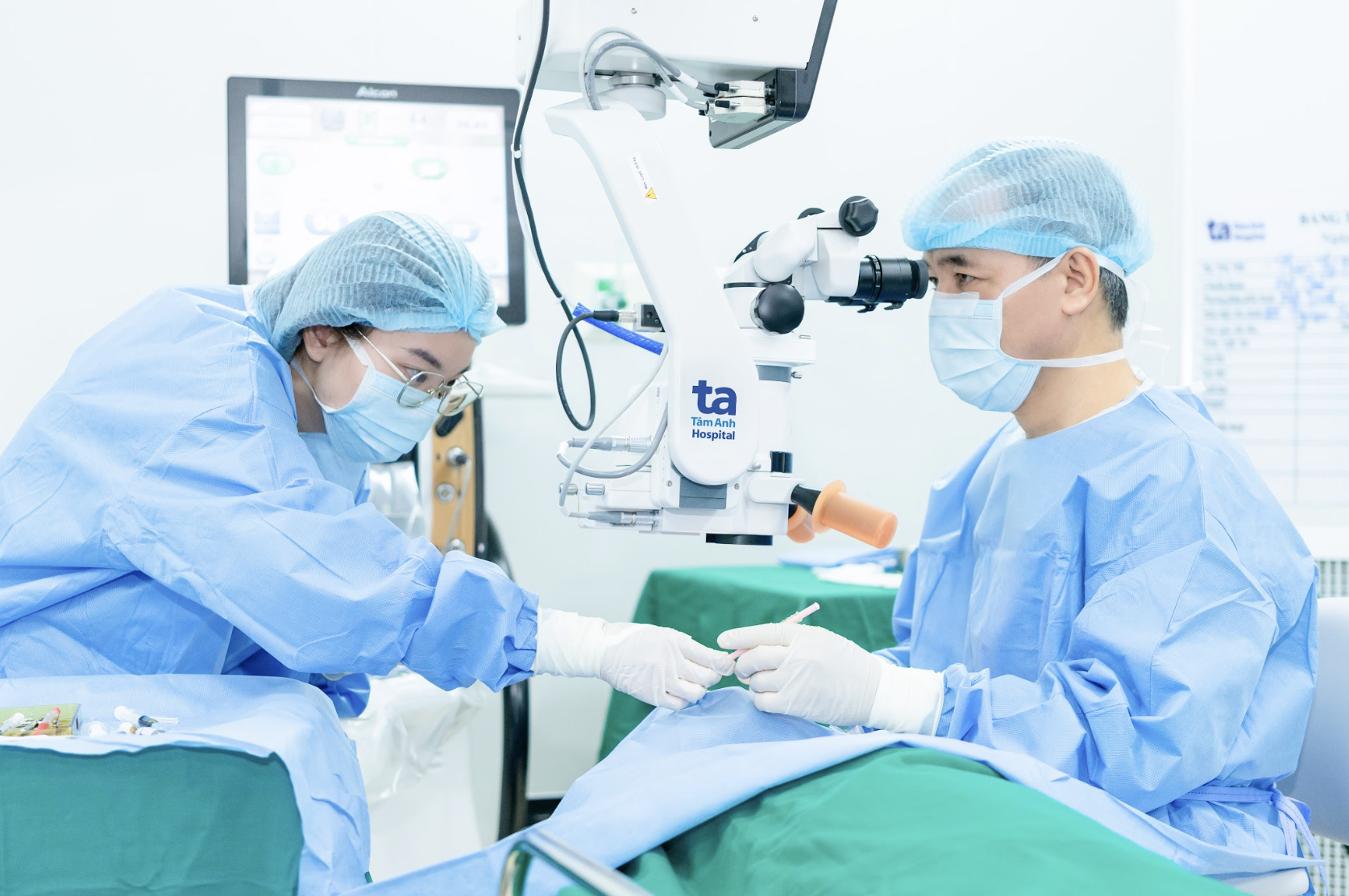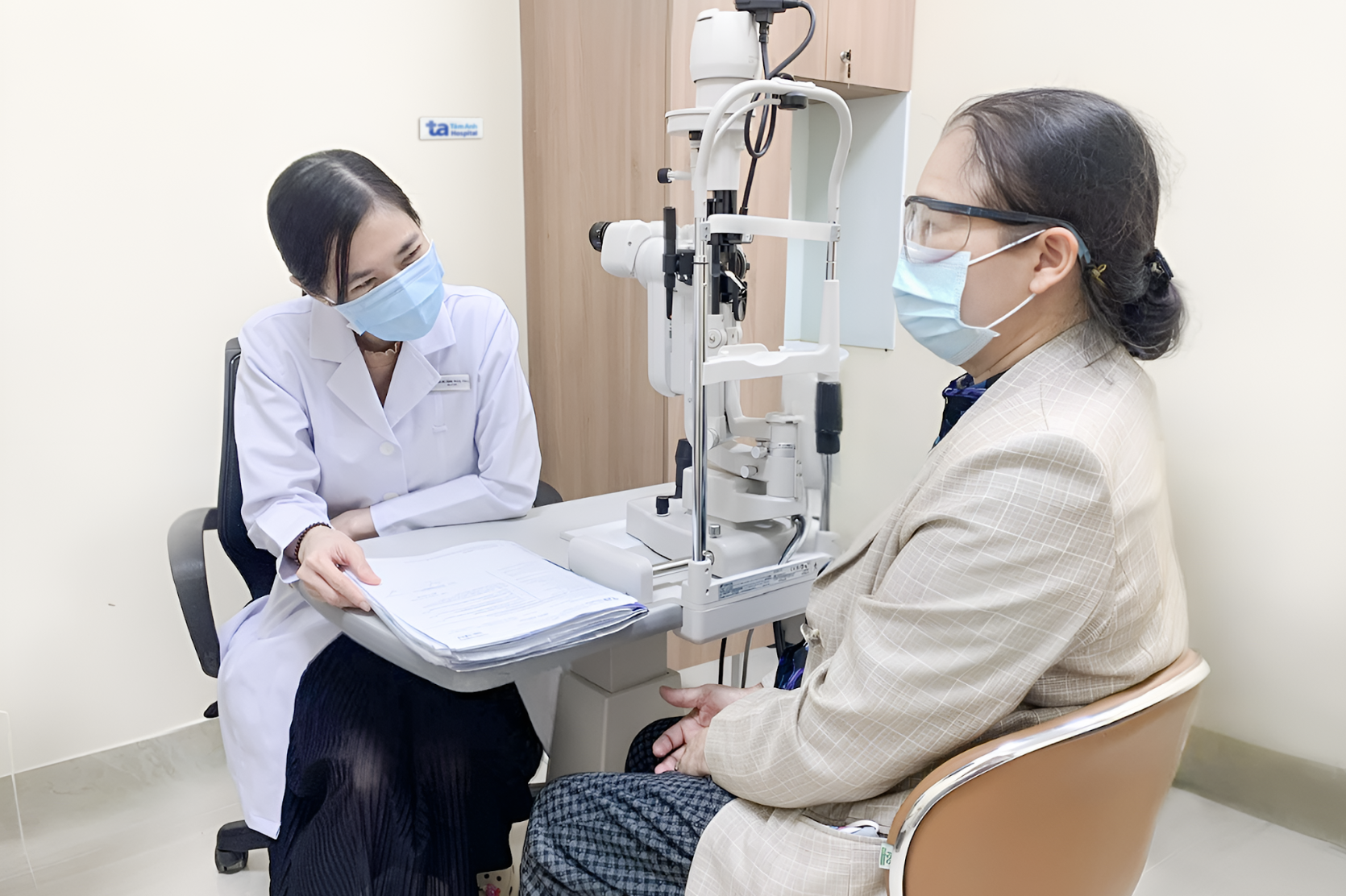The 78-year-old patient, with underlying conditions of diabetes and hypertension, was deemed fit for phacoemulsification cataract surgery by doctors at the High-Tech Eye Center, Tam Anh General Hospital, TP HCM.
Scheduled for two separate surgeries, one week apart, Tam had each eye treated. Post-surgery, her vision cleared, eliminating blurriness and glare. A week after the second procedure, her left eye's vision improved to 8/10 and her right to 9/10.
 |
Doctors performing phacoemulsification cataract surgery on Tam. Photo: Tam Anh General Hospital |
Doctors performing phacoemulsification cataract surgery on Tam. Photo: Tam Anh General Hospital
Doctor Tang Ngoc Anh, deputy head of the High-Tech Eye Center, explained that while the surgery wouldn't completely cure Tam's presbyopia (age-related farsightedness), it could significantly improve it by using a suitable artificial lens. Phacoemulsification, a modern cataract treatment, uses ultrasound to break down the clouded lens, which is then extracted through a small, 2-3 mm incision in the cornea. An intraocular lens (IOL) is then implanted, replacing the natural lens and restoring vision.
 |
Doctor Ngoc Anh examining Tam after both surgeries. Photo: Tam Anh General Hospital |
Doctor Ngoc Anh examining Tam after both surgeries. Photo: Tam Anh General Hospital
Cataracts occur when the eye's natural lens becomes cloudy, hindering light from reaching the retina. This is a leading cause of vision impairment and blindness, especially in older adults. Cataract surgery is an effective treatment, often resulting in significant vision improvement.
Cataracts typically develop gradually, with few initial symptoms. As the condition progresses, blurred vision, eye strain, and decreased visual acuity become noticeable. These are the earliest and most important signs.
Most patients regain optimal vision, eliminating the need for glasses or contact lenses. However, recovery time varies. Doctor Ngoc Anh advises patients to avoid wind, dust, smoke, forceful coughing, strenuous activity, and screen time (TV, phone, computer) for about a month after surgery, after which they can resume normal activities.
Bach Duong
*The patient's name has been changed.
| Readers can submit questions about ophthalmological conditions here for doctors to answer. |












